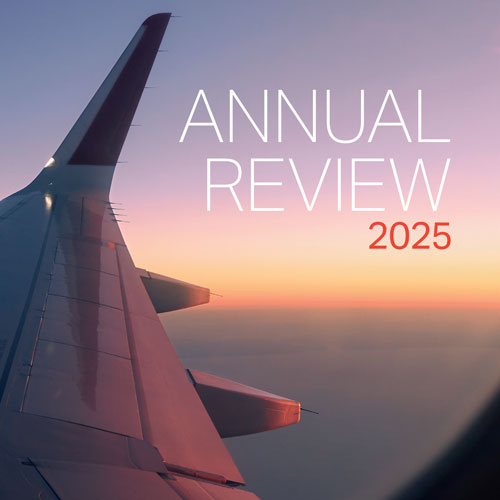
Translation:
(pdf) الطيران محرك رئيسي للنمو الاقتصادي والاتصال في مصر
Amman – The International Air Transport Association (IATA) released a study measuring the significant economic and employment benefits aviation (including aviation-related tourism) generates for Egypt. Based on 2023 figures, this includes:
- USD 21.1 billion of economic activity which is equal to 5.3% of Egypt’s Gross Domestic Product (GDP) (including wider supply chain, employee spending, and tourism activities)
- 1.4 million jobs (across the supply chain and including tourism), of which 32,800 are directly employed by airlines
- 338,600 tonnes of air cargo handled
> Access the full study (pdf)
“Aviation is a key contributor to Egypt’s economy. Directly and through its well-developed tourism industry, aviation supports nearly 1.4 million jobs. And over 5% of Egypt’s GDP has close links to aviation. Importantly, the Egyptian government is using the aviation sector as a strategic enabler for its economic and social development. I was encouraged by the Minister of Civil Aviation’s reaffirmation of the government’s commitment to continued close collaboration with IATA in order to further expand aviation’s benefits to Egypt—guided by global standards and best practices across all areas of aviation, including safety, sustainability, cost-efficiency, skills development, and more,” said Kamil Alawadhi, IATA’s Regional Vice-President for Africa and Middle East following a meeting with Dr. Sameh Elhefny, Minister of Civil Aviation, Egypt.
Key Priorities for Egypt
To continue maximizing the benefits of aviation, IATA highlights three key priorities for Egypt:
- Cost-Efficiency: As Egypt strategically invests in airport infrastructure (Cairo International, Borg El Arab and Sphinx International), IATA urges the government to collaborate with airline users and adhere to global best practices. Such collaboration will avoid unnecessary financial burdens on airlines and passengers.
- Sustainability: IATA is encouraged by Egypt’s collaboration with the European Bank for Reconstruction and Development to create the capacity to produce 120,000 tonnes of Sustainable Aviation Fuel (SAF) annually. This supports Egypt’s Vision 2030 and aligns with the global goal of achieving net-zero carbon emissions in aviation by 2050. It is an encouraging step which will help place Egypt and its aviation sector on the patch to achieving its common goal of decarbonizing aviation.
- Capacity-Building: A strong and skilled aviation workforce is critical to growing aviation’s benefits. From technical operations to digital transformation and sustainable practices, a future-ready workforce will strengthen safety, efficiency, and long-term resilience.
For more information, please contact:
Corporate Communications
Tel: +41 22 770 2967
Email: corpcomms@iata.org
Notes for Editors:
- IATA (International Air Transport Association) represents some 350 airlines comprising over 80% of global air traffic.
- You can follow us on X for announcements, policy positions, and other useful industry information.
- Fly Net Zero
- IATA has published more than 80 national Value of Air Transport studies. Developed in partnership with independent economists at Oxford Economics, each report contains a comprehensive analysis of the contributions of aviation to GDP, employment, tourism, cargo and connectivity. Given how the demand for air transport has continued to grow, it is reasonable to assume the economic contribution and employment supported by aviation has increased since the data were compiled in 2023.

